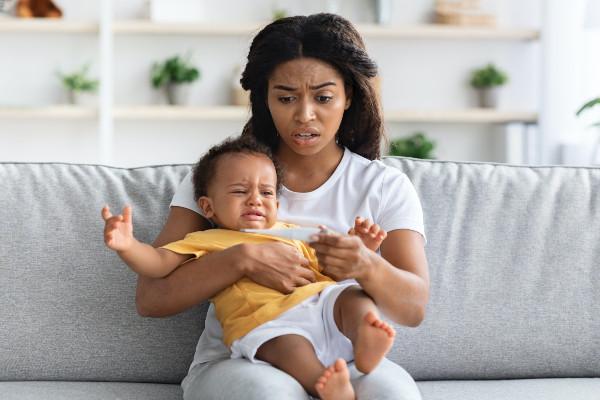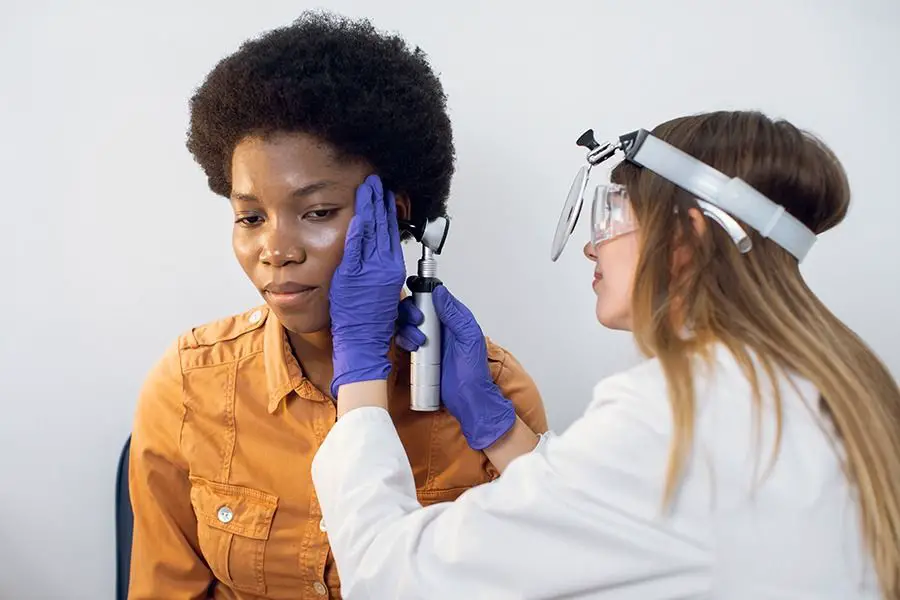Introduction
As a parent, you want the best for your child, including their health and well-being. Unfortunately, illnesses and conditions can still arise that impact their overall quality of life, including their hearing. One such condition that parents should be aware of is meningitis, which has been linked to hearing loss in children.
In this blog post, we’ll explore the connection between meningitis and hearing loss, including the causes, symptoms, and treatments available. We’ll also provide some tips and insights to help parents better understand this condition and take steps to protect their child’s hearing health.
Experience the world like never before with the RCA OTC Behind-the-Ear Hearing Aid. Our advanced digital technology ensures that every sound is crystal clear and vibrant, allowing you to fully immerse yourself in life’s experiences. Whether it’s the laughter of loved ones or the music that moves you, our hearing aid brings back the joy of every moment.
Say goodbye to the hassle of appointments and prescriptions. The RCA OTC Hearing Aid is designed to meet the needs of individuals without the need for a prescription. With its seamless setup and user-friendly design, you can effortlessly enhance your hearing abilities and stay connected to the world around you. Simply unpack, wear, and enjoy improved auditory perception instantly.
Experience optimal comfort and style with our discreet behind-the-ear design. The thin tube design allows you to wear glasses comfortably, so you can enjoy clear hearing while maintaining your personal sense of style. Plus, our rechargeable battery ensures long-lasting power, eliminating the inconvenience of constantly replacing small batteries. Elevate your hearing experience with the RCA OTC Hearing Aid and embrace the world with confidence.
What is meningitis and how does it impact hearing?
Meningitis is a serious condition that causes inflammation of the membranes surrounding the brain and spinal cord. This inflammation can lead to a range of symptoms, including fever, headache, and neck stiffness. However, meningitis can also impact hearing, leading to partial or complete hearing loss.
The reason for this is that the inflammation caused by meningitis can damage the delicate structures within the ear that are responsible for transmitting sound to the brain. This can result in a range of hearing problems, including difficulty hearing certain sounds or frequencies, tinnitus (ringing in the ears), and even complete deafness.
QUIZ - CURRENT RESEARCH ON HEARING LOSS IN CHILDREN
Understanding the risk factors for meningitis-related hearing loss
While anyone can contract meningitis, certain factors can increase the risk of developing the condition and the associated hearing loss. These risk factors include:
- Age: Children under the age of five are at the highest risk for meningitis and hearing loss.
- Exposure: Exposure to people who have meningitis or certain bacteria that can cause meningitis can increase the risk of infection.
- Weakened immune system: Individuals with weakened immune systems, such as those with HIV or undergoing chemotherapy, are at a higher risk for meningitis and hearing loss.
- Crowded living conditions: Living in close quarters with others, such as in dormitories or military barracks, can increase the risk of meningitis transmission.
Recognizing the symptoms of meningitis and hearing loss in children
Symptoms of meningitis can vary depending on the age of the child and the type of meningitis they have. Common symptoms include fever, headache, neck stiffness, and a rash. However, in young children, symptoms may be more difficult to recognize and may include irritability, vomiting, and poor feeding.
Symptoms of hearing loss may include difficulty hearing certain sounds or frequencies, trouble understanding speech, and ringing in the ears. If you suspect that your child may have meningitis or hearing loss, it’s important to seek medical attention right away.
Diagnostic testing for meningitis-related hearing loss
If you suspect that your child may have hearing loss caused by meningitis, a hearing test is often the first step in diagnosis. During a hearing test, a specialist will evaluate your child’s ability to hear different sounds and frequencies, using a series of tests and measurements.
In some cases, additional testing may be needed to evaluate the extent and cause of the hearing loss. For example, an auditory brainstem response (ABR) test may be used to evaluate the function of the nerves that transmit sound from the ear to the brain. An MRI or CT scan may also be used to evaluate the structures of the ear and brain.

Protected: Unraveling the Mystery: Solutions for Parents Facing Meningitis and Hearing Loss
There is no excerpt because this is a protected post.

Tinnitus affliction: Find answers to your top questions
Tinnitus is characterized by a ringing, buzzing, or whistling sound in the ears. Causes of tinnitus can include exposure to loud noise, ear infections, certain medications, and age-related hearing loss. There’s no one-size-fits-all treatment for each individual case and it may take trial and error to find the best solution.
Treatment options for hearing loss caused by meningitis
The treatment for hearing loss caused by meningitis will depend on the extent and cause of the hearing loss. In some cases, hearing aids or cochlear implants may be recommended to help your child hear more clearly. These devices work by amplifying sound or directly stimulating the auditory nerve.
In cases of severe hearing loss or deafness, sign language or other forms of communication may be recommended. It’s important to work closely with a specialist to determine the best treatment approach for your child and to ensure that they receive the support and resources they need.
The importance of early intervention for meningitis-related hearing loss
Early intervention is crucial for minimizing the impact of meningitis-related hearing loss on your child’s overall quality of life. The sooner that hearing loss is diagnosed and treated, the better the chances of preserving or improving your child’s hearing.
If you suspect that your child may have hearing loss caused by meningitis, it’s important to seek medical attention right away. A specialist can provide a comprehensive evaluation and recommend appropriate treatment options
Preventing meningitis and hearing loss in children
Prevention is the best way to protect your child from meningitis and the associated risk of hearing loss. Here are some steps you can take to reduce your child’s risk of meningitis:
- Vaccinate: Ensuring that your child receives recommended vaccines for meningitis can greatly reduce the risk of infection.
- Practice good hygiene: Encourage your child to wash their hands regularly and avoid sharing utensils or drinks with others.
- Avoid exposure: Try to limit your child’s exposure to people who have meningitis or certain bacteria that can cause meningitis.
- Maintain a healthy immune system: Ensure that your child eats a healthy diet, gets enough rest, and stays active to support a strong immune system.
Supporting children with hearing loss caused by meningitis
If your child has hearing loss caused by meningitis, it’s important to provide them with the support and resources they need to thrive. This may include working with a specialist to develop a treatment plan, providing access to hearing aids or other assistive devices, and connecting with support groups or other resources for families of children with hearing loss.
Tinnitus: why it’s still such a mystery to science
Conclusion
In conclusion, meningitis can have a profound impact on a child’s hearing health, but with early recognition and intervention, hearing loss caused by this condition can be minimized or prevented. By understanding the risk factors, symptoms, and treatment options available, parents can take steps to protect their child’s hearing health and ensure that they receive the care and support they need to thrive.









